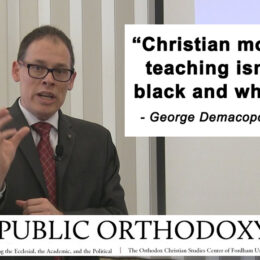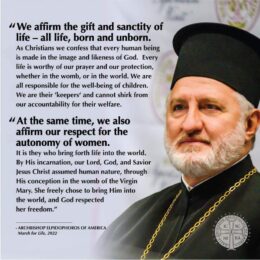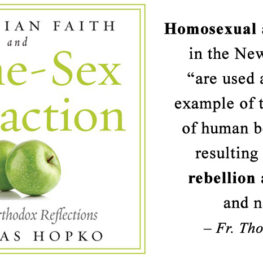OrthodoxyToday | George Marsden | Jan. 13, 2009
Evangelical colleges and universities have been thriving. According to the Council for Christian Colleges and Universities, the one hundred or so “intentionally Christ-centered institutions” that they count among their affiliates have been growing at a remarkably faster rate than have other major sorts of American colleges and universities. From 1990 to 2004, all public four-year campuses grew by about 13%, all independent four year campuses (including many schools with broad religious or denominational connections) grew by about 28%. But schools associated with the CCCU grew by nearly 71%.
One factor contributing to this growth is that these schools offer the sort of coherent educational experience that has become increasingly difficult to find elsewhere in American higher education. By way of contrast, consider Harry R. Lewis’s, Excellence Without a Soul: How a Great University Forgot Education (2006). Lewis, former Dean of Harvard College, laments that Harvard is driven by so many competing careerist and ideological interests that there is little attention either in the curriculum or among faculty (who are rewarded only for scholarship) to fostering healthy personal and moral growth among its students. If that is the case at Harvard, one can imagine the incoherence of the educational experience at the huge state universities and the many community colleges where the vast majority of America’s collegians get their degrees. Most of what students study involves practical skills in preparation for careers. Liberal arts are incidental to most undergraduate experience. The best hope for “community” is found in fraternities and sororities or more likely just in a dorm containing many sub-groups of those who happen to find common recreational interests.
In the meantime colleges such as those in the Council for Christian Colleges and Universities have been maturing academically and offering the sort of well-rounded collegiate experience that one might imagine was more characteristic of Harvard and other liberal arts institutions of half a century ago. (I write as a graduate of Haverford College who is nearing a fiftieth reunion and I can testify to these commonalities.) To understand the flowering of Christian colleges, one has to realize that their overall academic quality has been steadily increasing for decades. For the past generation as more and more evangelicals attended colleges, their communities have been producing a striking number of academics. Today in leading graduate programs around the country one can find impressive contingents of evangelical students. Many of these are in the liberal arts, since they have grown up in communities where ideas have consequences. Many others explore human behavior in the social sciences or are attracted to the disciplines and the beauties of the hard sciences. Since for the past generation all colleges have enjoyed a buyer’s market in faculty hiring, even the most modest of evangelical schools have been able to build highly talented and excellently trained faculties both in the arts and the sciences. As a rule, evangelical faculties at CCCU schools are a long way from the culture-wars stereotypes that some people attribute to evangelicals in general. Rather, while they may be more conservative on average than are academics as a whole, these faculties represent some of the most thoughtful elements in their communities and include some distinctly progressive voices.
While increased academic excellence is a factor in the growth of evangelical colleges, probably more immediately important in the decisions to attend such colleges are the coherent supportive communities that provide the context for such education. Being part of a community that is supportive of one’s faith is one attraction. But there are many other benefits to being at a smaller campus where there is a strong sense of community and one is likely to find many kindred spirits. Nonetheless, when people are deciding whether to pay the considerable extra cost for such a college experience the fact that these schools are genuinely competitive academically helps justify the decision. Such schools offer curricula that have the sort of coherence that larger and more diverse schools typically lack. Every student, even in specialized technical areas, is likely to have some substantial exposure to the liberal arts. They will also take a few courses in the religious tradition itself. Moreover these academic offerings come as part of a larger communal educational experience that they can share with many who have similar interests and concerns.
. . . more



